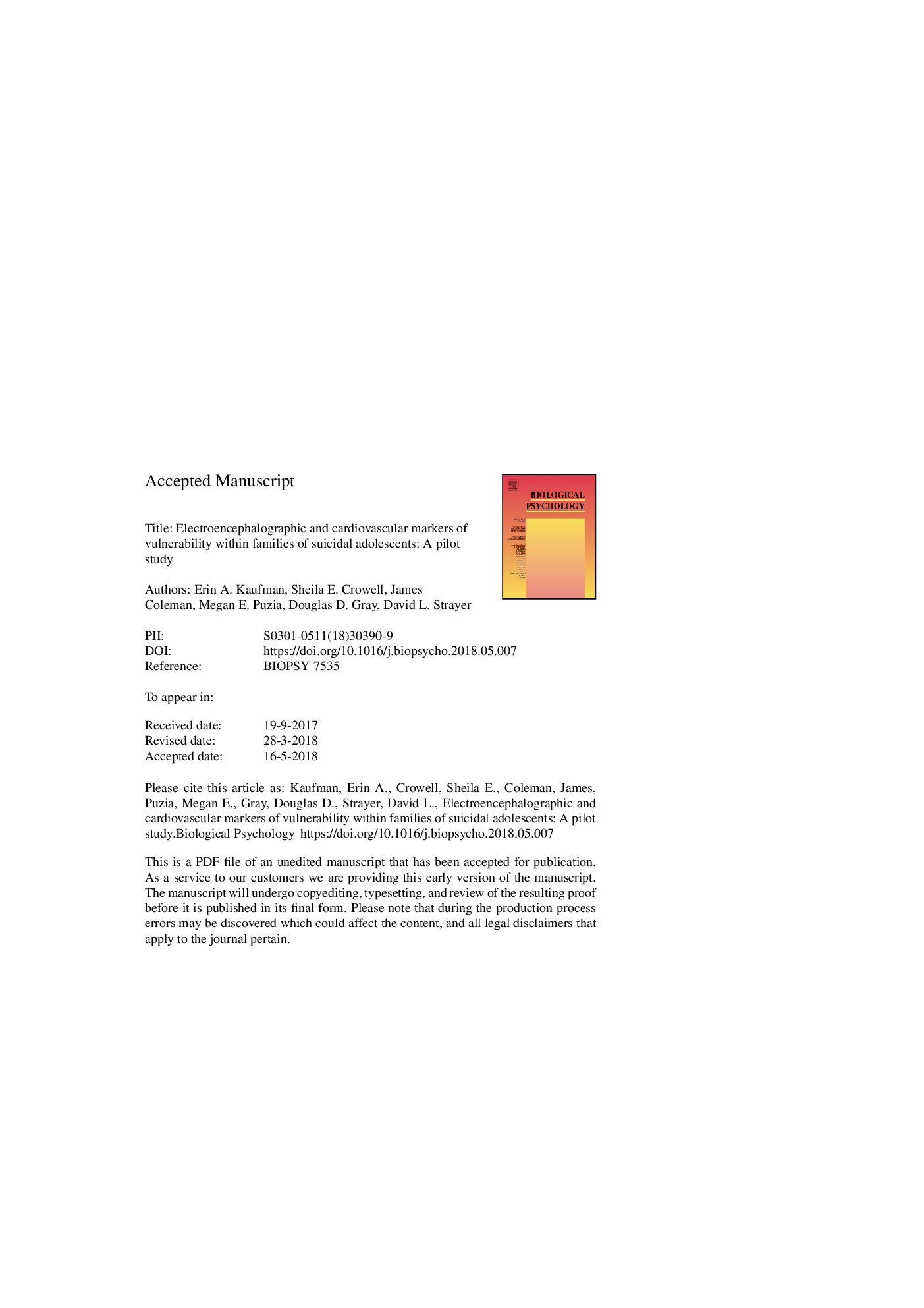| Article ID | Journal | Published Year | Pages | File Type |
|---|---|---|---|---|
| 7278077 | Biological Psychology | 2018 | 43 Pages |
Abstract
Suicide, self-injury, and predisposing vulnerabilities aggregate in families. Those at greatest risk often show deficits in two biologically-mediated domains: behavioral control and emotion regulation. This pilot study explored electroencephalographic and cardiovascular indices of self-regulation among typical and suicidal adolescents (nâ¯=â¯30/group) and biological family members (mothers, fathers, and siblings). We measured event-related potentials during a flanker task designed to evoke impulsive responding and respiratory sinus arrhythmia (RSA) at rest and during social rejection. Multilevel models indicate control families' RSA was unaffected by social rejection (slopeâ¯=â¯0.136, pâ¯=â¯.097, dâ¯=â¯0.09), whereas clinical families demonstrated RSA withdrawal (slopeâ¯=â¯â0.191, pâ¯=â¯.036, dâ¯=â¯â0.13). Clinical families displayed weaker positive voltage (Pe) deflections following behavioral errors relative to controls (coefficientâ¯=â¯â2.723, pâ¯=â¯.017, dâ¯=â¯â0.45), indicating risk for compromised cognitive control. Thus, families with suicidal adolescents showed autonomic and central nervous system differences in biological markers associated with suicide risk.
Keywords
Related Topics
Life Sciences
Neuroscience
Behavioral Neuroscience
Authors
Erin A. Kaufman, Sheila E. Crowell, James Coleman, Megan E. Puzia, Douglas D. Gray, David L. Strayer,
